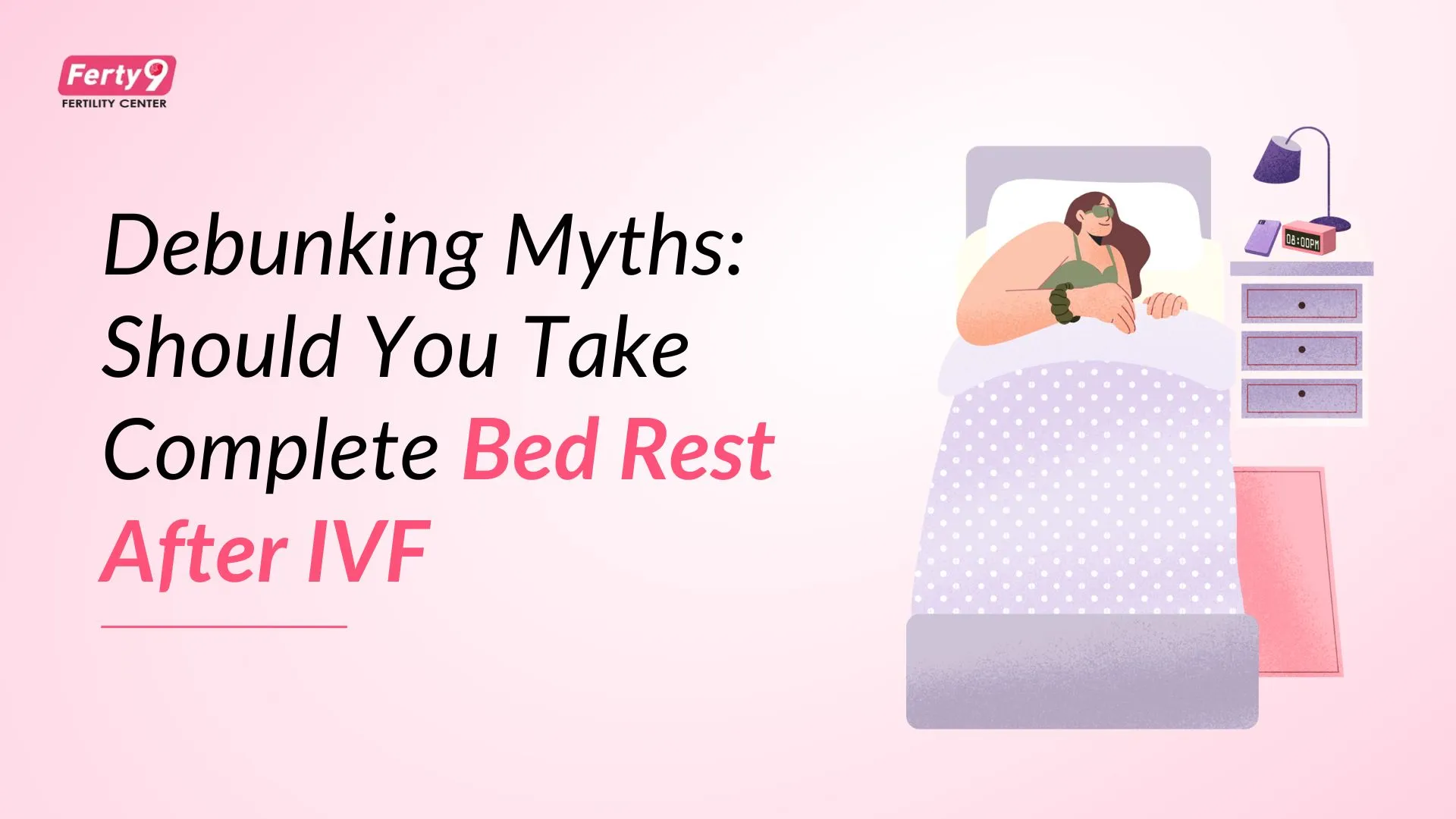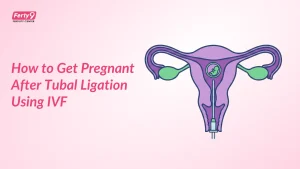The IVF journey is a significant emotional and physical experience, and understanding its complexities and myths are very important for empowering individuals. Focusing on gentle activity, self-care, and open communication with healthcare teams can lead the couple to a healthier recovery after IVF process.
Steps In Vitro Fertilization (IVF)
The IVF procedure involves fertilizing an egg outside the body in a laboratory. In this process, every step has a specific significance to get a successful pregnancy outcome. The steps include stimulation of ovaries, egg retrieval, fertilization of egg and sperm in laboratory conditions, embryo culture, embryo transfer and implantation into the uterus of a female partner and finally a pregnancy test. The fertility experts support the process along with medications for ovaries stimulation, egg development monitoring, and preparation of uterine lining for implantation.
Emotional Impact in IVF Journey
The IVF process may cause hopelessness, anxiety, stress, and uncertainty due to numerous appointments, medications, and waiting periods. It can also lead to social isolation and increased risk of mental health issues. Seeking best fertility expert support is very important to overcome the emotional impact on the couple by discussing the myths and facts of the process.
Physical Aspects of IVF
Ovarian stimulation medications can cause side effects like hot flashes, headaches, nausea, breast tenderness, mood swings, discomfort at the time of egg retrieval and embryo transfer. Ovarian Hyperstimulation Syndrome (OHSS), fatigue may be observed due to hormonal fluctuations and emotional stress, and temporary physical restrictions on post-procedure activities. Medications might cause mild abdominal discomfort and nausea.
Myth 1: Strict Bed Rest is Essential for Implantation
In general, women believe that lying completely still for extended periods after the embryo transfer is very important for the embryo to implant successfully.
Reality: After embryo transfer, strict bed rest is not beneficial and may disturb your physical and mental well-being. It’s recommended to resume normal daily routines and gentle activity. Doctors suggest a short rest period of rest for comfort, but prolonged bedtime does not improve pregnancy rates. Implantation is primarily influenced by embryo quality and implantation of embryo in uterus. The bed rest is recommended only to the female partner having a history of miscarriages or with low level placenta.
Myth 2: Donor sperms or donor eggs are used in IVF process
Some people believe that IVF involves the use of donor sperm or donor eggs for fertilization.
Reality: In the majority of the IVF cycles, eggs and sperm of the intended couples are used. Donor sperm, donor eggs, or donor embryos are used only in specific situations, such as when one or both partners have significant fertility issues, genetic concerns, or have had multiple failed IVF cycles with their own egg or sperm. The decision to use donor materials is taken by the individual couple, made in consultation with a fertility specialist.
Myth 3: Baby is born with abnormalities when conceived by IVF process
There’s a misconception that IVF procedures increase the risk of birth defects or developmental abnormalities in babies.
Reality: IVF babies have a similar risk of major birth defects to naturally conceived babies (3 to 4 %), with advanced maternal age being a significant factor. Preimplantation Genetic Testing (PGT) is often used to screen embryos for specific genetic disorders before transfer, potentially reducing the risk of passing on inherited conditions.
Myth 4: Caesarean Section is Mandatory for IVF Pregnancies
Some couple believe that all pregnancies achieved through IVF need a C-section for delivery.
Reality: A C-section is not mandatory for IVF-conceived pregnancies. The mode of delivery is determined by the same factors as naturally conceived pregnancies. It includes the mother’s and baby’s health, baby’s position, and labor complications at the time of delivery. Many IVF-conceived women have successful vaginal deliveries.
Myth 5: IVF Almost Always Results in Multiple Pregnancies (Twins, Triplets, etc.)
There’s a common perception that IVF frequently leads to multiple pregnancies, especially twins.
Reality: IVF has a higher risk of multiple pregnancies compared to natural conception due to the historical practice of transferring multiple embryos. However, modern IVF is focusing on elective single embryo transfer (eSET), which significantly reduces the risk of high-order multiple pregnancies and complications associated with twin pregnancies. While twins can still occur with eSET, it’s less common than transferring multiple embryos.
Myth 6: The IVF Procedure is Extremely Painful!
Many individuals fear that the IVF process, particularly egg retrieval and embryo transfer, is intensely painful.
Reality: The IVF process is a minor procedure that includes: egg retrieval, performed under sedation or anesthesia, is painless and can sometimes cause mild cramping or discomfort. Embryo transfer is a quick, painless procedure and can also be done under sedation if necessary. Over-the-counter pain relievers can manage the minimal pain caused by the procedure.
What happens after Embryo transfer?
The two-week wait (TWW) after embryo transfer can be emotionally challenging for women due to physiological processes such as minimal physical sensations, lingering effects of procedures, and progesterone symptoms. These symptoms are not necessarily pregnancy symptoms but are due to medication being taken. The implantation process typically occurs 6 to 10 days after fertilization, depending on the embryo’s developmental stage. Hormonal shifts, particularly progesterone, can lead to physical sensations that mimic early pregnancy or pre-menstrual symptoms. If pregnancy doesn’t occur, hormone levels will drop, leading to symptoms similar to those experienced during pregnancy.
Post-IVF Care: Importance and Lifestyle Adjustments
Adopt healthy practices that support your body and mind.
Avoid very hot baths, smoking, alcohol, and travel.
Prioritize 7-9 hours of quality sleep each night.
Maintain balanced nutrition and hydration.
Consume a nutrient-rich diet rich in fruits, vegetables, whole grains, and lean protein.
Avoid processed foods and sugary drinks and continue to take prenatal vitamins.
Limit consumption of caffeine-containing beverages and avoid unpasteurized foods and high-mercury fish.
Conclusion:
IVF is a complex and emotionally demanding process that involves fertilizing an egg outside the body in a laboratory. It can lead to side effects and fatigue. Consulting a best fertility expert and clarifying all the myths and facts about the IVF process may help the couple stay comfortable and give them emotional support throughout the process.



























